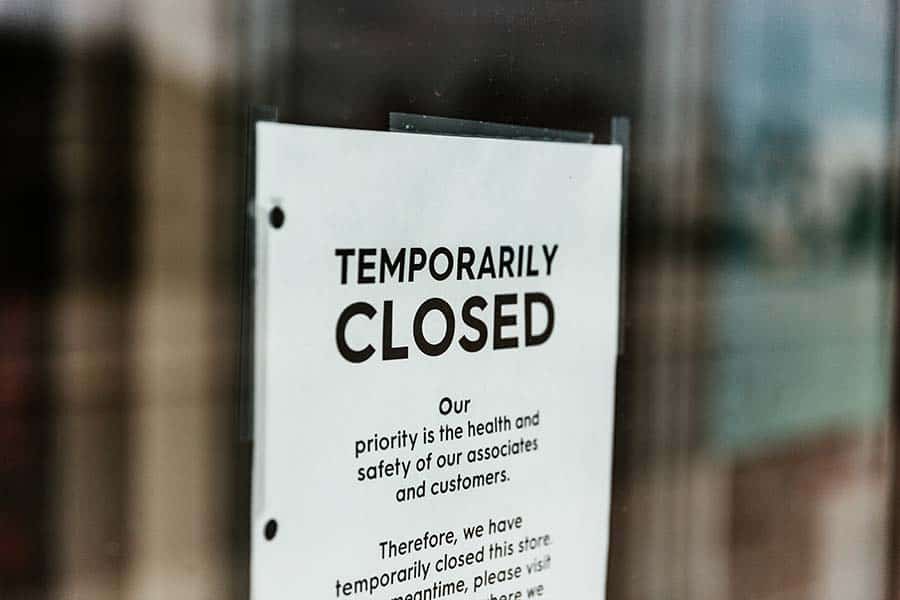LOCKDOWN: The rules & restrictions mobility and access business leaders need to know
The closure of non-essential retail, no reintroduction of shielding, the extension of furlough and new grants: These are just some of the measures mobility and access business leaders will need to be aware of ahead of England’s lockdown this November.
Prime Minister Boris Johnson confirmed on 31 October 2020 that England will face a second national lockdown from 5 November until Wednesday 2 December, heightening the uncertainty facing the mobility industry.
It comes just weeks after the introduction of a three-tier local lockdown scheme designed to prevent a full-scale national lockdown, such as the one in the spring.
During an address to the nation, however, the Prime Minister, Chief Medical Officer, Chief Scientific Advisor warned that the NHS was weeks away from being overwhelmed and it was predicted that there would be a higher death toll than the first wave without new restrictions.
The new, month-long lockdown will be similar to the spring lockdown, with the notable differences being schools remaining open throughout the period and no shielding measures being imposed.
Following the announcement, the government has issued more details regarding the specific rules. THIIS has summarised the key restrictions set to impact retailers and suppliers in the industry:
New lockdown rules impacting the mobility sector:
Businesses and retailers
Similarly to the first lockdown, the government has ordered all ‘non-essential’ retail shops to close from Thursday.
According to the government guidance, all non-essential retail will include, but not limited to, clothing and electronics stores, vehicle showrooms, travel agents, betting shops, auction houses, tailors, car washes, tobacco and vape shops.
Food shops, supermarkets, garden centres and certain other retailers providing ‘essential goods and services can’ will be permitted to remain open, confirmed the government. Those companies that can remain open much follow COVID-secure guidelines.
THIIS has contacted the Secretary of State for Business, Energy and Industrial Strategy, Alok Sharma MP, along with Nadhim Zahawi MP and Paul Scully MP, to ask for clarity regarding definitively if mobility retailers are permitted to remain open and is awaiting comment.
The government has said that a full list of the business closures will be published and set out in law.
Business grants for closed businesses
Businesses that are required to close in England due to local or national restrictions will be eligible for either:
- Grants to be £1,334 per month or £667 per two weeks – for properties with a rateable value of £15k or under
- Grants to be £2,000 per month or £1,000 per two weeks – for properties with a rateable value of between £15k-£51k;
- Grants to be £3,000 per month or £1,500 per two weeks – for properties with a rateable value of £51k or over
Furlough scheme extended
The Coronavirus Job Retention Scheme, known as the furlough scheme, will remain open until December, with employees receiving 80 per cent of their current salary for hours not worked, up to a maximum of £2,500.
The cost for employers of retaining workers will be reduced compared to the current scheme, with employers now asked to pay just National Insurance and Pensions contributions for their staff during the month of November.
The Job Support Scheme will not be introduced until after the Coronavirus Job Retention Scheme ends.
Stay at home
Much like the first lockdown, people will be legally required to remain in their homes, except under specific circumstances, such as for childcare, for work (where work cannot be conducted from home), to shop for ‘essentials’ or for medical concerns.
The government has said a full list of circumstances will be set out in law and updated guidance will be published in due course.
Meeting with others
People will not be permitted to meet socially indoors with family or friends that are not part of their household or support bubble (a support bubble is where a household with one adult joins with another household, enabling them to visit each other, stay overnight, and visit outdoor public places together).
Outdoors, people can exercise or visit outdoor public places with the people they live with, their support bubble, or one person from another household (children under school age, as well as those dependent on round-the-clock care, such as those with severe disabilities, who are with their parents, will not count towards the limit on two people meeting outside).
Outdoor places include parks, beaches, the countryside, public gardens and playgrounds.
Shielding
The government has stated that “shielding as practised in the spring will not currently be reintroduced.”
For the clinically extremely vulnerable, the government has advised that these groups must be particularly careful to follow the rules and minimise contact with others, including not going to work if they are unable to work from home.
New guidance is set to be published today (2 November) for those considered clinically extremely vulnerable and the government has said it will write to everybody who falls into this group to set out detailed advice while the new restrictions are in place.
See the current guidance from the government here.
THIIS will continue to cover lockdown news as it breaks to ensure the industry is able to adapt quickly and plan effectively. Be sure to stay in the know by subscribing to the twice-weekly news round-up newsletter for free.
https://thiis.co.uk/lockdown-the-rules-restrictions-mobility-and-access-business-leaders-need-to-know/https://thiis.co.uk/wp-content/uploads/2020/09/temporarily-closed-sign-on-shop-door.jpghttps://thiis.co.uk/wp-content/uploads/2020/09/temporarily-closed-sign-on-shop-door-150x150.jpgBusiness SupportCoronavirus NewsCOVID-19 Sector NewsCOVID-19 Trade NewsGovernment & Local AuthoritiesNewsroomRetailer NewsSector NewsSupplier NewsTrade NewsThe closure of non-essential retail, no reintroduction of shielding, the extension of furlough and new grants: These are just some of the measures mobility and access business leaders will need to be aware of ahead of England’s lockdown this November. Prime Minister Boris Johnson confirmed on 31 October 2020 that...Calvin BarnettCalvin Barnettcalvin.barnett@bhta.comAuthorTHIIS Magazine


